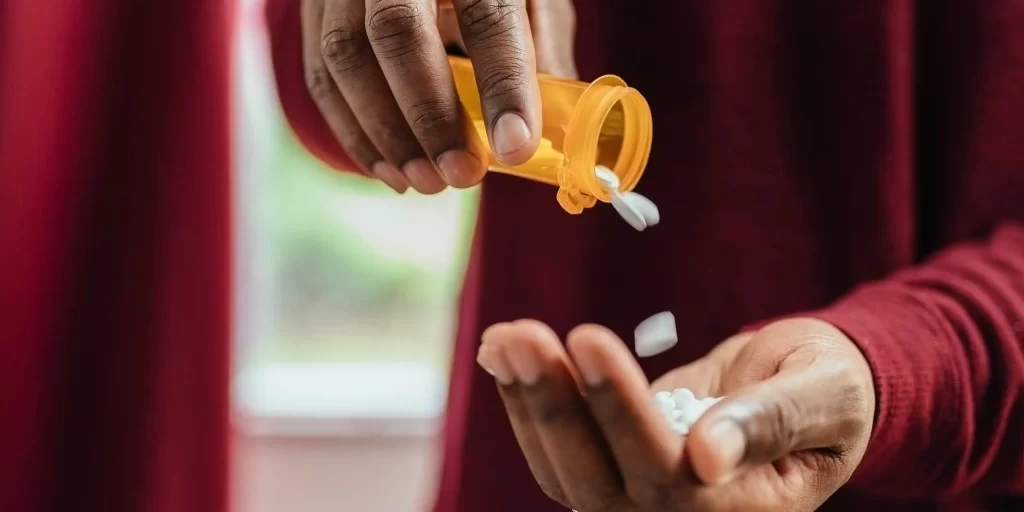Understanding Ritalin Abuse
Written by Gretchen Koebbe
& Medically Reviewed by Dr. Conor Sheehy, PharmD, BCPS, CACP
Medically Reviewed
Up to Date
Last Updated - 6/17/2022
View our editorial policy
Ritalin, the brand name for methylphenidate, is a stimulant medication prescribed to treat attention-deficit/hyperactivity disorder (ADHD). Ritalin is mostly prescribed for children but can be used in adults as well.
Ritalin is a schedule II controlled medication, meaning that it has the potential for addiction and abuse. Ritalin abuse is common among people who use the drug without a prescription as a “study aid” or to help them in school.
Stimulant medications help improve focus but also produce euphoria, which can lead to abuse and addiction.
Common side effects of Ritalin use include weight loss, trouble sleeping, headache and heart problems. A doctor will monitor for these side effects if the drug is prescribed properly.
What Is Ritalin Used For?
Methylphenidate, the generic name for Ritalin, has two FDA-approved indications: attention-deficit/hyperactivity disorder (ADHD) and narcolepsy.
ADHD is a condition that most often affects children but can be diagnosed in adults as well. Symptoms include high activity levels, limited attention span, difficulty concentrating and inattention. ADHD is easily confused for normal behavior in children, so a careful diagnosis must be made by a doctor.
Narcolepsy is a debilitating sleep disorder where a person has excessive daytime drowsiness and sudden attacks of sleep. People can fall asleep without warning in the middle of the day, which causes problems at work and while operating vehicles.
Ritalin’s drug class is a central nervous system (CNS) stimulant. Ritalin increases levels of norepinephrine and dopamine in brain cells, which helps to increase attention and alertness.
ADHD and narcolepsy are the FDA-approved Ritalin uses, but Ritalin is sometimes used off-label for depression. Most doctors will not prescribe Ritalin for depression because there are safer and less addictive options available. However, certain patients may benefit if they have exhausted all other treatment options.
Side Effects of Ritalin
Ritalin side effects are similar to those of other stimulant medications. Common side effects of Ritalin can happen even in people who are using it correctly with a valid prescription:
- Diarrhea
- Difficulty falling asleep or staying asleep
- Dry mouth
- Headache
- Irritability
- Low appetite
- Muscle tightness
- Nausea/vomiting
- Nervousness
- Restlessness
- Weight loss
Sometimes Ritalin will produce more serious side effects, and any of the following should be reported to the prescribing doctor:
- Believing things that are not true (delusions)
- Changes in vision or blurred vision
- Chest pain
- Depression
- Fast, pounding or irregular heartbeat
- Feeling unusually suspicious of others
- Mood changes
- Physical tics or verbal tics
- Seeing or hearing things that are not there (hallucinations)
- Seizures
- Trouble breathing
When someone is abusing the drug, more serious side effects become more likely. Ritalin abuse side effects are much more common when taking larger doses than prescribed or when using Ritalin without a prescription.
Is Ritalin Addictive?
Yes, Riatlin (methylphenidate) is a schedule II medication according to the Drug Enforcement Agency (DEA). Schedule II medications have a known medical use, but a high potential for abuse and addiction as well.
Regular use may develop into Ritalin dependence, which means that if an individual does not take the drug they will experience withdrawal symptoms.
Examples of withdrawal symptoms include:
- Cravings to take the drug
- Drowsiness and tiredness
- Hallucinations (seeing or hearing things that are not there)
- Mood swings like depression, agitation, and anxiety
- Physical symptoms: headaches, increased appetite and trouble sleeping
- Trouble concentrating
Risks of Ritalin Abuse
Since withdrawal is uncomfortable and cravings are often intense when taking stimulants, a person who is misusing and addicted to Ritalin will usually have a strong drive to continue using the drug to alleviate the negative side effects.
Ritalin health risks include unintentional weight loss, mood changes, trouble sleeping and long-term damage to the heart.
Ritalin overdose can lead to hospitalization but is rarely fatal. Common symptoms of overdose are abnormal heart rhythm, confusion, muscle twitching, sweating, tremors and vomiting.
A person overdosing may be excessively thirsty, but they may have trouble communicating. The most dangerous permanent effect of Ritalin overdose is damage to the heart.
Statistics on Ritalin Use
Ritalin usage statistics show that about 7 in 100 people in the United States use the drug at some point in their lifetime.
This number of people using Ritalin in the United States peaked in the 1990s and has remained constant since then. People who are most likely to abuse Ritalin are white, male college students who are affiliated with social organizations.
College students seem to have the highest rate of Ritalin abuse with up to 31% self-reporting abuse in surveys.
Treatment for Ritalin Addiction
Ritalin addiction treatment is similar to treatment for other prescription stimulants.
Upon checking into a treatment center, an addiction professional evaluates the patient to discover the extent of drug abuse. Depending on the severity, treatment can take place in a facility (inpatient treatment) or from home with a combination of therapy and classes (outpatient).
Ritalin rehab can last anywhere from a few months to many years, depending on factors like co-occurring psychiatric disorders, other drug and alcohol problems or resistance to treatment.
To learn more about treatment or to explore treatment options, call The Recovery Village Ridgefield. If you are worried about yourself or a loved one abusing Ritalin, take the first steps with a drug and alcohol evaluation. A representative can direct you to treatment specialists in your area and beyond.
Sources
Bogle, Kristin E; Smith, Bradley H. “Illicit Methylphenidate Use: A Review of Prevalence, Availability, Pharmacology, and Consequences.” Current Drug Abuse Reviews, 2009. Accessed July 16, 2019.
Mayo Clinic. “Narcolepsy – Symptoms and Causes.” 2019. Accessed July 16, 2019.
Medline Plus. “Methylphenidate: MedlinePlus Drug Information.” 2019. Accessed July 16, 2019.
Morton, W Alexander; Stockton, Gwendolyn. “Methylphenidate Abuse and Psychiatric Side Effects.” Primary Care Companion to the Journal of Clinical Psychiatry, 2000. Accessed July 16, 2019.
American Psychiatric Association. “What Is ADHD?” 2017. Accessed July 16, 2019.
View Sources
Bogle, Kristin E; Smith, Bradley H. “Illicit Methylphenidate Use: A Review of Prevalence, Availability, Pharmacology, and Consequences.” Current Drug Abuse Reviews, 2009. Accessed July 16, 2019.
Mayo Clinic. “Narcolepsy – Symptoms and Causes.” 2019. Accessed July 16, 2019.
Medline Plus. “Methylphenidate: MedlinePlus Drug Information.” 2019. Accessed July 16, 2019.
Morton, W Alexander; Stockton, Gwendolyn. “Methylphenidate Abuse and Psychiatric Side Effects.” Primary Care Companion to the Journal of Clinical Psychiatry, 2000. Accessed July 16, 2019.
American Psychiatric Association. “What Is ADHD?” 2017. Accessed July 16, 2019.
Authorship



